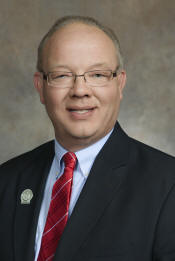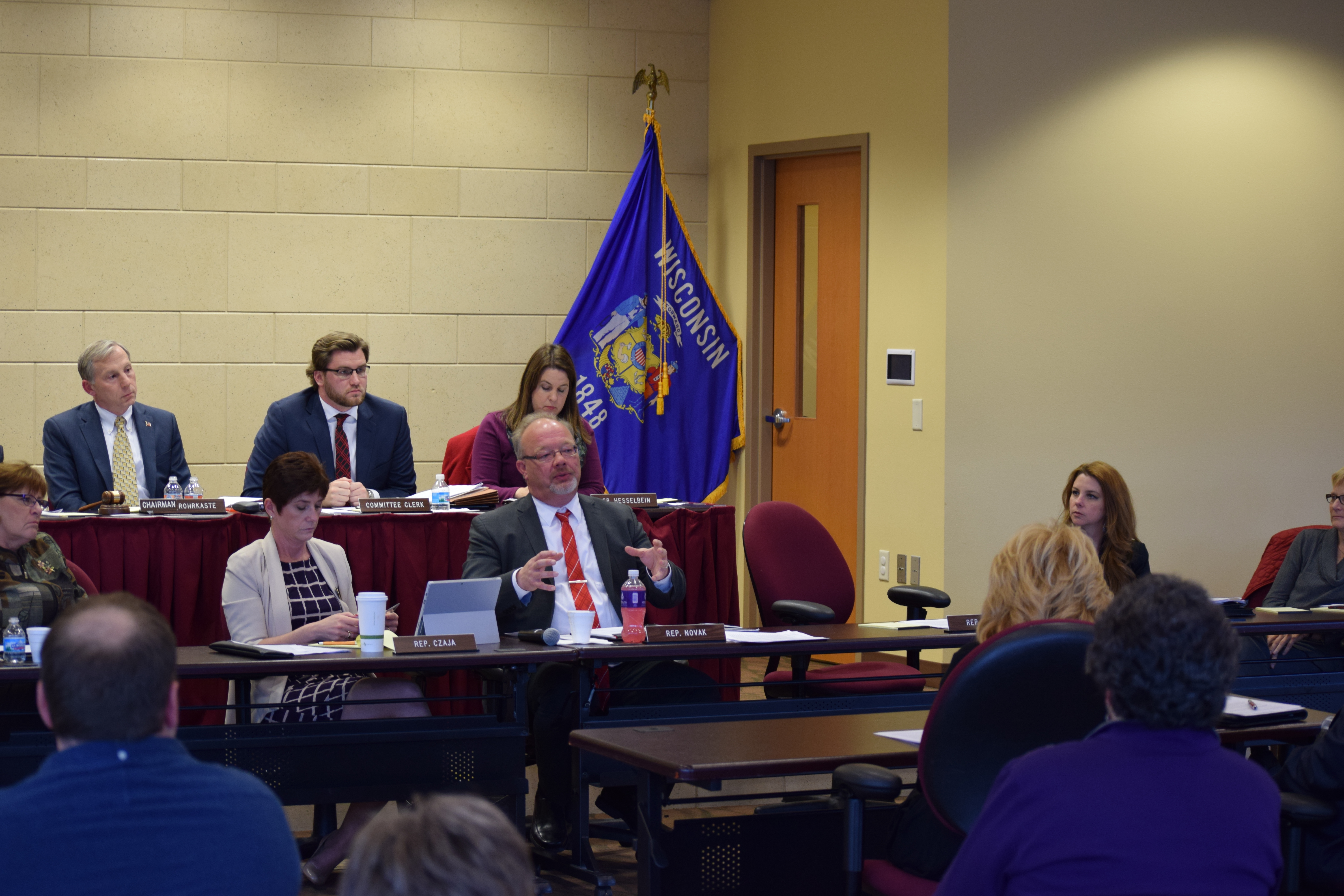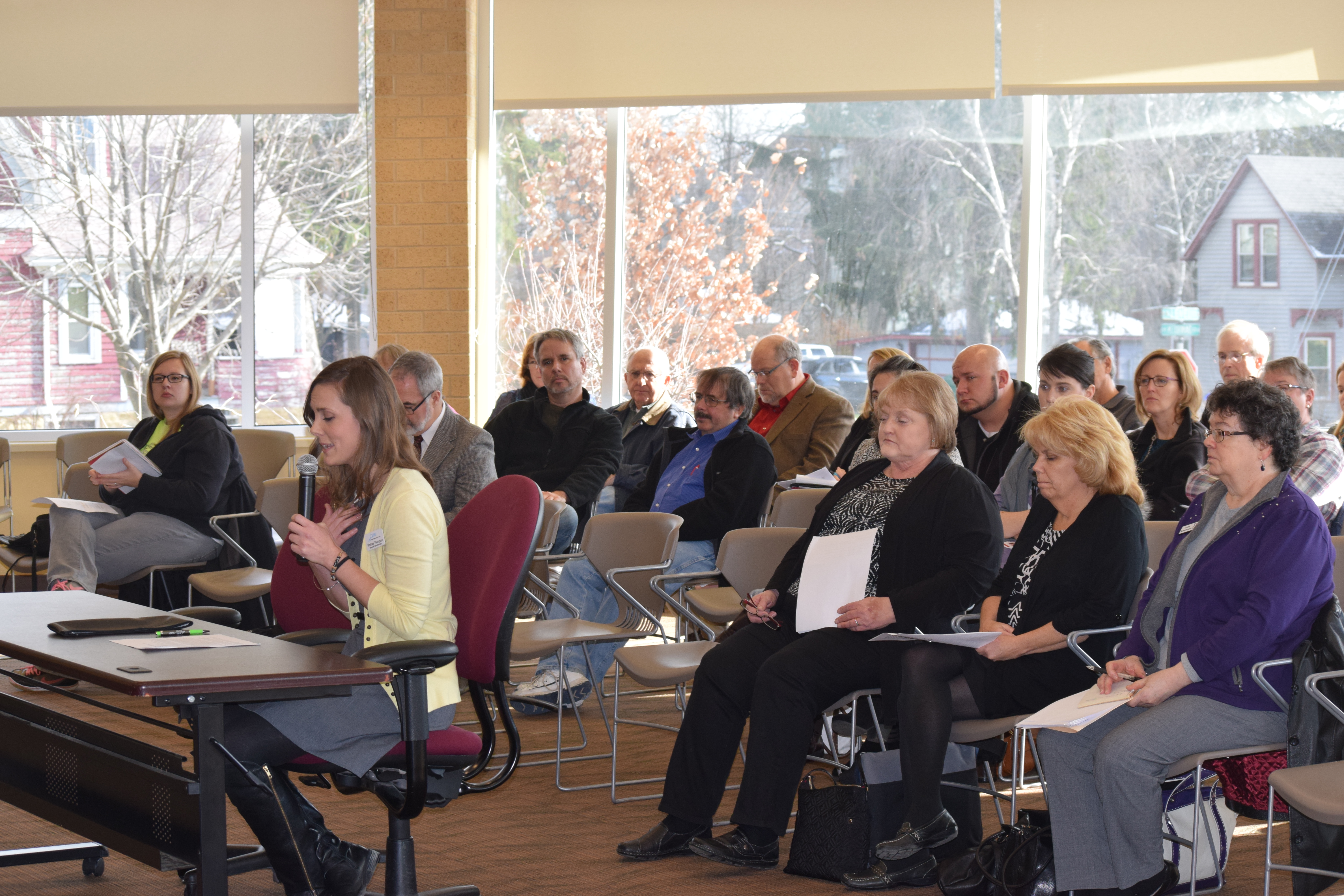AB 513 Gets a Hearing:
Sharing Information Between Adoptees and
Birth Parents

The Committee on Children and Families
has scheduled a bill of mine, Assembly Bill 513 for a Public Hearing
Next week.
With
November having been proclaimed Adoption Month in Wisconsin, and as a
proud parent of two adopted sons, it's great that this bill will have a
hearing. I'm looking forward to the opportunity to testify and
bring attention to Assembly Bill 513.
This bill
makes a number of changes to update current law and increase access to
information sharing between adoptees and birth parents.
The proposed changes will allow greater opportunities for information
sharing between adoptees and birth parents that could assist adult
adoptees in obtaining updated medical information and family history.
Many individuals who were adopted have an interest in obtaining
information about their biological parents to understand their cultural
identity and family background and/or for medical reasons to find out
their potential medical risks and make prudent, informed decisions about
treatment options.
For example, an adult woman may want to know whether her biological
mother had a history of breast cancer to be informed if she has a
heightened risk of breast cancer. Currently, the adult adoptee cannot
obtain updated family health information if the biological mother is
deceased or obtain information on her mother’s identity if her mother
did not sign an affidavit for disclosure of this information prior to
her death.
One of the key changes in the bill will allow the release of a birth
parent’s information when the birth parent is deceased. Of the 250
requests DCF received last year from adult adoptees for birth parent
information, approximately 50 requests involved deceased parents. As a
result, these 50 individuals were not able to obtain family and medical
information that was important to them.
The proposed changes will respond to the interests and needs of adult
adoptees while still protecting the rights of living biological parents
who want to preserve their confidentiality. LRB 0834 would make the
following changes regarding access to confidential adoption information:
1. Allow the release of a birth parent’s identifying information
(including the adoptee’s impounded birth certificate) when that birth
parent is known to be deceased and it does not breach the
confidentiality of another legally identified birth parent.
2. Remove s.48.432(4)(a) which currently requires an eligible requester
to obtain a letter from a physician in order to request updated
medical/genetic information.
3. Allow an adult adoptee to file an affidavit that would allow the
Adoption Search Program to release his or her identifying information to
their birth parent upon the parent’s request as long as it does not
breach the confidentiality of another legally identified birth parent.
4. Allow a parent or guardian of a minor offspring of a deceased adoptee
to request medical/genetic information.
The hearing is scheduled for
Wednesday, December 9, 2015
10:02 AM
415 Northwest
Update: Speakers Task
Force on Alzheimer's & Dementia
This week
the Speakers Task Force on Alzheimer's and Dementia were in
Dodgeville for a public hearing. Prior to the hearing, we had the
opportunity to participate in a Virtual Dementia Tour at the Iowa County
Health & Human Services Building. The virtual dementia tour
simulates mid to late stages of dementia, it was informative and eye
opening.
The
invited speakers that spoke at the hearing did a great job; Whitney
Thompson, Dementia Care Specialist at the ADRC of Southwest Wisconsin;
Becky Dahl, Regional Manager at the ADRC of Eagle Country; Maria
Johnson, Green County Adult Protective Services; Steve Michek, Iowa
County Sheriff; Nate Dreckman, Grant County Sheriff; Lori Reid, Director
of the ADRC of Southwest Wisconsin - Grant County Office; Ruth Rotramel,
Outreach Specialist for the ADRC of Southwest Wisconsin - Grant County
Office; Joan Litwitz, Share the Care Project Coordinator; Judge Andrew
Bissonnette, Retired Dodge County Circuit Court Judge and Steering
Committee Chair of WINGS (Working Interdisciplinary Network of
Guardianship Stakeholders); and Deanna Truedson, Outreach Coordinator
for the Alzheimer's and Dementia Alliance of Wisconsin. Thank you
to Mary Mezera, the Regional Manager at ADRC of Southwest Wisconsin, she
was incredibly helpful in scheduling and helping plan the hearing. Thank
you to many others who came to share their stories with the Task Force.
Having the
public hearing in Dodgeville was a great chance for the task force to hear
innovative ideas, suggestions, and testimony from our area. It's great
to have the people of Southwest Wisconsin speak on the issue and be involved
in raising awareness.
The hearing provided
unique, educational, and informative testimony from the invited speakers, and the public. These hearings are designed for face-to-face sharing of ideas, concerns
and input. I hope you will join us at the next public
hearing.
The
remaining hearing schedule:
Wednesday, December 9th – Eau Claire area public hearing
I will
continue to keep you all informed on what we are doing, I’m proud to
have the opportunity to bring awareness to this important issue.


Whitney Thompson, Dementia Care Specialist at the ADRC of Southwest
Wisconsin provided the task force with the virtual dementia tour, and
also spoke at the public hearing.
Give,
But Don’t Get Taken: Watch for Holiday Charity Scams
Wisconsin
Department of Agriculture, Trade, and Consumer Protection is the state’s
primary consumer protection agency. The Department has the the Bureau
of Consumer Protection (BCP), they take great pride in providing services to
inform, educate, and protect the public. With the holidays right
around the corner, they recently put out a release that provides consumers
with helpful information to be aware of during this time of year. You can
find the release below:
Madison--For
many people, the holidays are as much about giving generously to different
charities as they are for giving gifts to friends and family. For scammers,
the holidays are a chance to take advantage of your goodwill through
fraudulent charities with high-pressure pitches. Two state agencies are
asking consumers to research charities before making a donation and to be on
guard against phone- and Internet-based requests for contributions.
“Scammers can lay it on pretty thick this time of year,” said Frank
Frassetto, Division Administrator of Trade and Consumer Protection for the
Wisconsin Department of Agriculture, Trade and Consumer Protection (DATCP).
“They know that aggressive, emotional appeals are effective during the
holidays, so keep a level head if asked for an on-the-spot donation.”
George Althoff, Communications Director for the Department of Financial
Institutions (DFI), encouraged consumers to do their homework on charitable
organizations when considering a donation.
“A good measuring stick is determining what percentage of an organization’s
donations are used for programs and services,” Althoff said. “Charities that
are well-run generally are ones that are spending a higher percentage of
their funds raised on programs and services, as opposed to overhead costs.”
Financial information about charitable organizations’ level of spending on
program activities can be found on the DFI
website, Althoff
said.
DATCP and DFI offer up these tips for donors considering a donation to a
charitable organization:
• Before donating, check to see if the charity is registered with DFI.
• If contacted by phone, avoid being pressured to make an immediate
donation. Don’t hesitate to ask the caller to send you information about the
organization and its programs.
• Ask a solicitor to explain the purpose of the organization, what services
are provided, how much of the donation goes to fund-raising expenses,
whether the donation is tax-deductible, and whether you will be sent a
receipt.
• Donate to charities that you trust and are well-established.
• To trick consumers into making donations, scammers will often use names
and websites that are similar to those of better-known, reputable
organizations. Watch the spelling closely.
• Be wary of unsolicited requests for donations, especially ones received
via the Internet.
• Criminals know that many people make year-end charitable contributions for
tax purposes, so they may use that as a tool in locking down a payment.
• Never write out a check or give cash to an individual solicitor. Write out
checks to the name of the organization or use a credit card.
For more information or to file a complaint, consumers may contact:
• DATCP on the web at datcp.wi.gov; by phone
(Consumer Information Hotline) at 800-422-7128; by e-mail at datcphotline@wisconsin.gov;
or at Facebook.
• DFI on the web at
www.wdfi.org/CharitableOrganizations; by phone at 800-452-3328; or by
e-mail at DFISecretary@wisconsin.gov.
Sincerely,
 |

